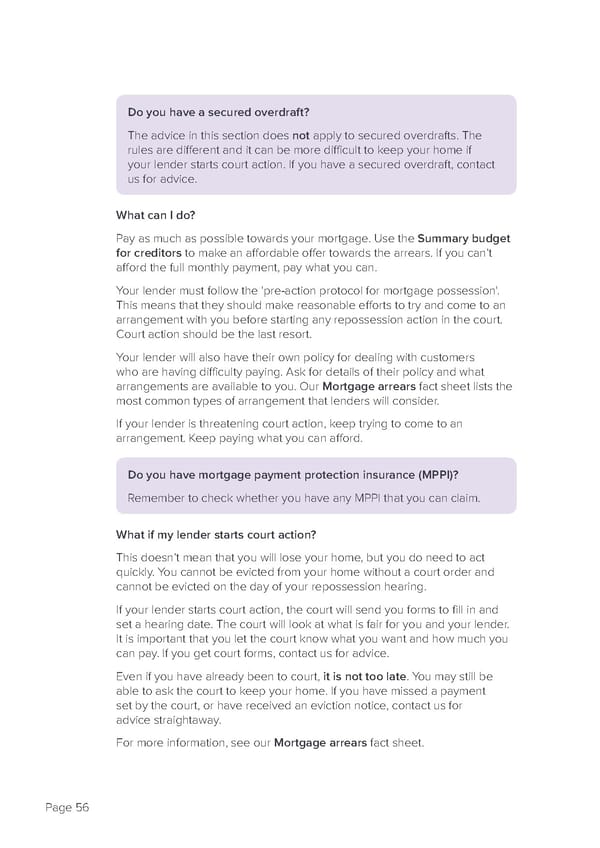Do you have a secured overdraft? The advice in this section does not apply to secured overdrafts. The rules are different and it can be more difficult to keep your home if your lender starts court action. If you have a secured overdraft, contact us for advice. What can I do? Pay as much as possible towards your mortgage. Use the Summary budget for creditors to make an affordable offer towards the arrears. If you can’t afford the full monthly payment, pay what you can. Your lender must follow the 'pre-action protocol for mortgage possession'. This means that they should make reasonable efforts to try and come to an arrangement with you before starting any repossession action in the court. Court action should be the last resort. Your lender will also have their own policy for dealing with customers who are having difficulty paying. Ask for details of their policy and what arrangements are available to you. Our Mortgage arrears fact sheet lists the most common types of arrangement that lenders will consider. If your lender is threatening court action, keep trying to come to an arrangement. Keep paying what you can afford. Do you have mortgage payment protection insurance (MPPI)? Remember to check whether you have any MPPI that you can claim. What if my lender starts court action? This doesn’t mean that you will lose your home, but you do need to act quickly. You cannot be evicted from your home without a court order and cannot be evicted on the day of your repossession hearing. If your lender starts court action, the court will send you forms to fill in and set a hearing date. The court will look at what is fair for you and your lender. It is important that you let the court know what you want and how much you can pay. If you get court forms, contact us for advice. Even if you have already been to court, it is not too late. You may still be able to ask the court to keep your home. If you have missed a payment set by the court, or have received an eviction notice, contact us for advice straightaway. For more information, see our Mortgage arrears fact sheet. Page 56
 how-to-deal-with-debt Page 57 Page 59
how-to-deal-with-debt Page 57 Page 59